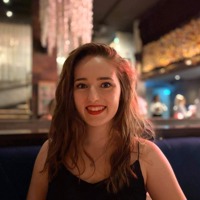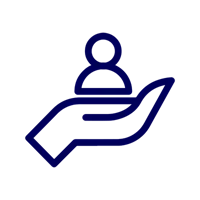
Data Manager at Roche
"If a job's worth doing, it's worth doing well" - this quote has got me through education and my career so far, it makes me strive to do my best and to push myself to complete any project so I can progress towards my future goals.
About Hollie...
Who am I?
"The personality types Coordinator, Manager, and Quality Controller were the ones I most closely matched with, and I think they are a good fit on the whole. I fit least well with \"manager\", even though that is the name of my job role, because I haven't had many opportunities to lead a team of people and manage large projects in my job yet, but I know I will in the future. I look forward to working on my manager skills! Quality Controller fits my personality well as my job involves a lot of checking other people's work to make sure it is done properly, I like to make sure things are done properly in my personal life too and have always had an eye for detail. I also coordinate a small team of people with a larger team as part of my job, which can be confusing at times, but I think this fits well with the Coordinator personality type. I am a coordinator outside of work too, I like organizing events with family and friends at home and I normally coordinate paying the bills etc.!"
What do I do?
"I am a Data Manager at a Pharmaceutical company. I work on clinical trials, which are where medicines are tested on small groups of people before they can be sold to everyone or given out in hospitals. My job is to collect all of the information from the people on the trials and make sure that the team can analyse the data and make an informed decision about medicine works and is safe for patients to use. I work with a small team of people who help write the forms for doctors running the trial to fill out, make sure we can get results from any laboratory tests (eg. blood tests), and that everyone in the wider company team understands what we do and why it is important. I have to talk to the scientists lots to make sure we are collecting all the right information for them to properly and safely test the medicines, I really enjoy doing this because I can find out more about the diseases that the medicine could help treat and how it works. My favorite part of my job is getting to talk to lots of different people and make decisions that will help treat more diseases in the future so patients can get better and live healthy happy lives.The starting salary for my role varies depending on the company, I believe it is around £35-40'000."
How did I get here?
"I started by taking separate sciences at GCSE, which involved taking an extra exam in each subject. I liked Biology the best, so I took it at A-level in sixth form as well as Maths (a useful subject to have for someone who didn't know what they wanted to do) and Psychology which was new to me at the time but I thought it sounded quite interesting. I was right, Psychology and Biology turned out to be very interesting, so I decided to study Biomedical Science at University to find out more about the body, diseases, and what medicines are out there to help. I did want to do some travelling though, so I took a gap year after I finished sixth form and before I started university. In my gap year, I worked back in the Biology department of my old sixth form as a technician setting up experiments for the students. This was really interesting and I was able to talk a lot to the teachers who all had really inspiring career paths themselves, and also allowed me to earn some money so I could travel in the summer. I then went to university.In the middle of my degree I took a placement year (also called a 'year in industry') which meant I paused my university studies for a year and got a job for 12 months. I decided that I wanted to try working in clinical trials, as I liked the idea of helping people out and working with new and exciting medicines, so I applied for lots of jobs. I ended up working at Roche (big pharmaceutical company) as a Clinical Programmer, which meant that I had to learn how to program the coding language SAS (and a bit of C#). I was coding the databases that collected patient data on the human clinical trials run at the company. I really enjoyed my placement year and worked with great people, but I also found out I wasn't very good at programming and didn't enjoy it very much, so I was glad I only did it as a placement year.I then started looking for jobs in my final year of university and thought I would contact my Roche manager from placement year to see if they had any other jobs available in the department. I didn't want to be a programmer, so I applied to the Data Manger job role. I also loved study neuroscience as part of Biomedical Science, so wanted to study it a bit more and applied to do a masters degree. In the end, I was very lucky that I was able to work at Roche straight after graduating and do the masters part-time for 2 years at the same time (only having classes one day a week). And that is what I am doing now! I am only at the very start of my career so who knows where it will take me in the future."
The life I live
"An interesting thing about me is that I have 3 younger sisters (spread out in age over 11 years) so I have a big family. I had to do lots of helping my parents out with looking after my sisters growing up, it also means lots of fun birthday celebrations and never having silence at the dinner table, so I love it. I haven't long moved into my first proper house since finishing university, so I am spending lots of my spare time sorting out things and making it nice - I love going on big shopping trips and coming back with lots of cushions etc.! I also love baking, so baking kitchenware is always on my shopping list, and having friends over for dinner and film nights. Whenever I am back at my parents house, I love to take their dog (a fluffy black spaniel) on walks with my sisters."
My typical day
"As most of my work is on the computer, I can work flexible hours and the company I work for doesn't mind what times I work (provided I join meetings when they are scheduled) or if I work from home, which is nice. I normally start work at around 9am and read/answer emails whilst eating my breakfast - some emails I need to reply to because they are specific to me or my projects, and some are more general information that is useful to know about my department, the company, a new medicine, or something else I can read whilst drinking a cup of tea!I then might have a catch-up meeting with my manager who checks in to see how I am doing, if I am meeting my goals for the year, and that I have the right amount of work (not feeling too busy or too bored). I can talk to them about other projects I want to take part in, such as STEM ambassador events, and how my current projects are going.The rest of the day is taken up with project work, my projects are almost always a clinical trial/study that I am overseeing. I tend to oversee about 3 trials at once, so I juggle the rest of the day meeting with different teams and people to make decisions and discuss progress. Clinical trials are highly regulated by the government (which is important so all medicines are properly tested and are safe) so there are a lot of forms and documents that need to be filled out, we need to keep track of anything that changes and any decisions we make in case they become important in the future. So I spend a few hours going through various documents and updating details about my study, sending emails to people who I need to contribute to my documents, and filling out tracking spreadsheets - this is not as boring as it sounds and often is very helpful in making sure that we all stay on track and the patient data is collected properly so that the medicine can get approved for use as fast as possible.I might have a global company meeting, or a big department meeting, at some point in the day, which is where people present updates on changes that might be important to me, big changes to the business, or interesting things about medicines or trials that I am not involved with. These meetings I can just listen to and don't have to speak unless I have a question, so they are more relaxed and informative.I tend to finish the day with making sure I have a to-do list ready for the morning, so I can easily pick up where I left off tomorrow. I finish around 5pm on a normal day so have plenty of time to exercise, make dinner, and do other fun activities in the evening."
My qualifications
"AS-level Geography, A-Levels Maths (Statistics), Psychology, and BiologyBSc Biomedical SciencePrevious job (placement year): Clinical ProgrammerCurrent job: Data Manager"



